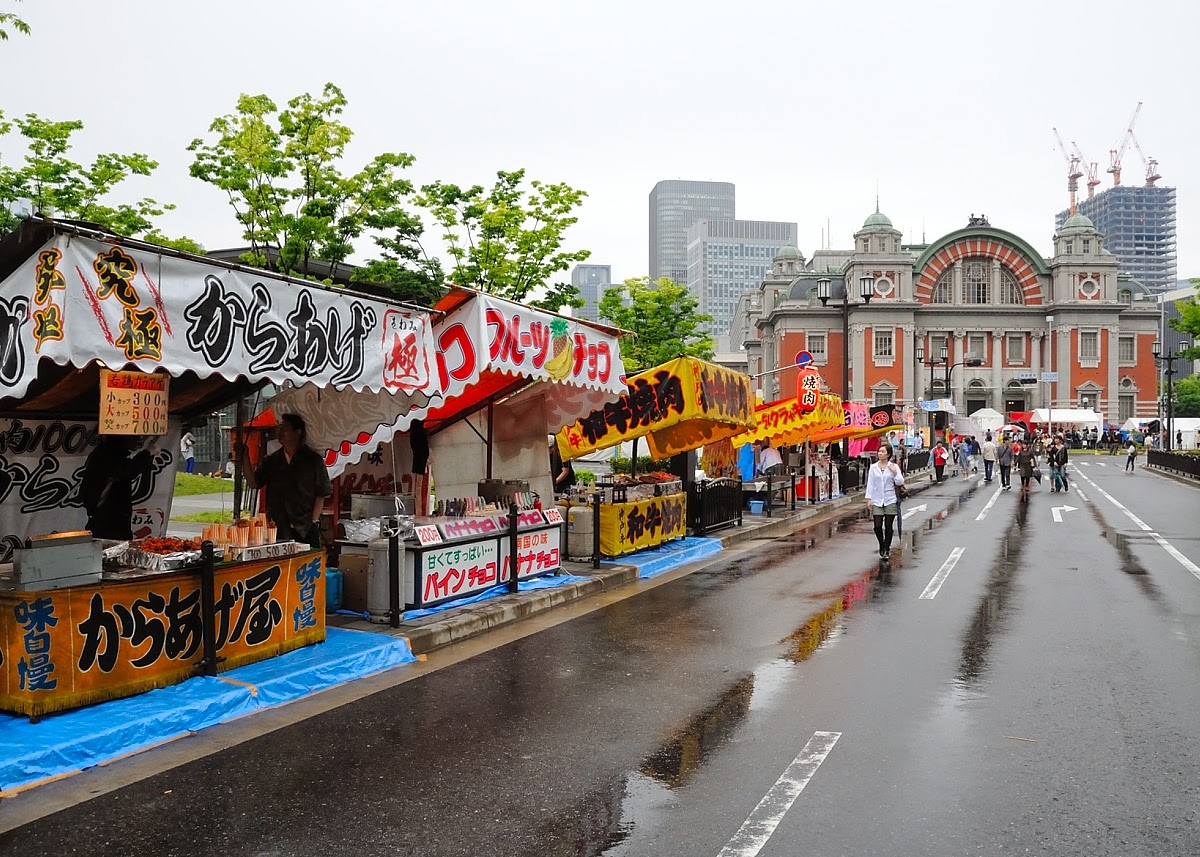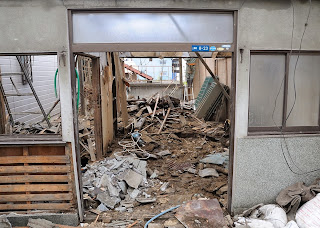Explorations and experiments in visual representations - multimodality, sensory ethnography, reflexivity, autoethnographic vignettes, ethnographic photography and ba...

Sunday, June 22, 2014
ETHNOFEST Athens Ethnographic Film Festival: Call for Films - Xenophobia and the Ethnographic Film
The Athens Ethnographic Film Festival continues the exploration of the anthropological world through the image and is looking for films made by anthropologists (or related background), including students' works, either as dissertations or as assignments.
The Athens Ethnographic Film Festival is introducing a new themed-screenings section, which will be showcasing ethnographic films focused on particular social issues. This year's theme is "xenophobia". As we consider issues of racist violence, aggressive expressions of nationalism and social exclusion to be of pressing relevance for the Athenian society today, we have decided to launch the themed section of the festival with a selection of ethnographic films that deal with such issues.
We are inviting submissions for films made by/ in collaboration with anthropologists (or other social scientists), which deal with one or more of the following issues: xenophobia; racism; racist hatred/violence; (religious/ ethnic) intolerance; social exclusion; discrimination; nationalism; euro-centrism.
The deadline is for submissions is July 28th.
For more information: http://ethnofest.gr/en/
Friday, June 20, 2014
"Interrogation audiovisual recordings set to expand"
From The Japan News, 20 June 2014:
The Supreme Public Prosecutors Office said Wednesday it will expand the test interrogation audiovisual recording program from October.
Currently under the program, public prosecutors record the questioning of criminal suspects in cases with lay judges, as well as suspects with mental disorders.
The recording is conducted as part of prosecutors’ three-year efforts to restore credibility that was undermined by evidence falsification and cover-up scandals at the Osaka District Public Prosecutors Office.
Now that the program has proved the recordings’ effectiveness in helping the court determine whether suspects gave confessions to interrogators voluntarily and whether they are credible, the nation’s top prosecutors office plans to record the questioning process for bribery suspects, sexual violence and child abuse victims, and spouses of murder suspects, the office said.
Source: http://the-japan-news.com/news/article/0001364503
The Supreme Public Prosecutors Office said Wednesday it will expand the test interrogation audiovisual recording program from October.
Currently under the program, public prosecutors record the questioning of criminal suspects in cases with lay judges, as well as suspects with mental disorders.
The recording is conducted as part of prosecutors’ three-year efforts to restore credibility that was undermined by evidence falsification and cover-up scandals at the Osaka District Public Prosecutors Office.
Now that the program has proved the recordings’ effectiveness in helping the court determine whether suspects gave confessions to interrogators voluntarily and whether they are credible, the nation’s top prosecutors office plans to record the questioning process for bribery suspects, sexual violence and child abuse victims, and spouses of murder suspects, the office said.
Source: http://the-japan-news.com/news/article/0001364503
"Govt to OK use of anonymous personal data"
Graphic and text from The Japan News, 20 June 2014:
The government plans to allow companies to provide personal data they own to third parties without consent from the individuals the data pertains to if the data is scrubbed of identifying details, The Yomiuri Shimbun has learned.
A study panel of the government’s IT Strategic Headquarters has compiled a draft for an outline on the utilization of data concerning personal information, such as browsing history and smartphone location tracking. The draft was to be presented at a meeting of the headquarters’ study panel on personal data on Thursday, and shortly to be adopted by the headquarters.
The government will then seek opinions from the public with the aim of revising the Personal Information Protection Law at an ordinary Diet session next year. The government reportedly aims to realize the plan in 2016.
With more and more companies utilizing so-called big data, a blanket term for huge quantities of digital data accumulated through information and telecommunication systems, there are growing calls for the protection of individual personal data such as Internet browsing history.
The government believes consumer concerns must be dispelled by establishing rules on such data to realize its plan to revitalize the nation’s economy through the utilization of big data, which was incorporated in its growth strategy.
The draft proposes that companies be allowed to offer without consent from individuals data that was scrubbed of identifiable information . Regarding how such data will be rendered anonymous, the draft hypothesizes that personal information would be made vague—for example, ages would be stated as “in his or her 20s” or “in his or her 30s” and addresses would be kept to prefectures, excluding municipalities.
Companies will use such data in accordance with voluntary rules to be compiled by relevant industry organizations and others.
The draft also calls for the establishment of a third-party organization tasked with inspecting and supervising companies to prevent exploitation of the rules and to ensure personal information is made anonymous. The envisaged watchdog will be granted authority to make on-the-spot investigations and issue recommendations for relevant companies, according to the draft.
Regarding such information as fingerprints and other biometric data, the government is to decide whether such data could be offered to third parties without consent from the relevant individuals by the time the bill will be compiled.
The draft regards such information as race, belief and social position to be sensitive information and prohibits companies from dealing with them in principle.
Regarding the utilization of personal data, many consumers are concerned that their preferences and behavioral patterns, as well as their names and addresses, will be exposed. Last year, East Japan Railway Co. suspended the selling of records of train and bus use by Suica card holders. JR East claimed it would be impossible to identify individuals from the data, but the firm reversed its position due to stronger than expected criticism from users.
Source: http://the-japan-news.com/news/article/0001365808
Monday, June 16, 2014
Seminar about the Takarazuka Revue Company @ the Japan Foundation, London
Image borrowed from the Japan Foundation, London.
Paul at the Japan Foundation, London, sent me this very interesting announcement:
This special event commemorating the 100th anniversary of Takarazuka provides an opportunity to cultivate a cross-cultural understanding of the theatre company through discussion. Beginning with a brief talk by Dr Nobuko Anan, a lecturer in Japanese studies at Birkbeck, University of London, regarding the history and characteristics of Takarazuka, she will be joined by Noriko Tosaka (aka Ai Otohara) and Machiko Nakano (aka Reo Kazami), two distinguished former Takarazuka performers, as well as Jano Williams, co-director of the documentary Dream Girls (1994). Tosaka and Nakano will reflect on their past experiences inside the exclusive, fiercely competitive company whose practices have remained largely unchanged for a century. As arguably one the first filmmakers outside of Japan to capture the elite world of Takarazuka, Williams, a British filmmaker, will speak about their motives for making their insightful film, and what they observed through the camera behind the scenes of the dazzling revue.
Following the discussion, the former Takarazuka performers will take part in a short demonstration illustrating the distinct form of male and female characterisations that the company is so well known for.
Date: 27 June 2014 from 6.30pm
Venue: The Japan Foundation, London
For more information: http://www.jpf.org.uk/whatson.php#658
There's a lot of other interesting and exciting events going on at the Japan Foundation. If you are in London, check them out!
http://www.jpf.org.uk/
Friday, June 6, 2014
“LONGOCAMPO DOX” – Film and Visual Anthropology Summer School
Image borrowed from http://academiasociovizuala.com/.
Caption reads: "If you want to shoot something, shoot a film!
© Longocampo hunt, 1900, Kalinderu studio"
© Longocampo hunt, 1900, Kalinderu studio"
We would like to bring to your attention a fresh and beneficial South-East European initiative, for the moment with its main headquarter in Romania, connecting SEE region with the world through socio-anthropology, film and visuality.
Socio - Visual Academy is a catalyst for education and production of socio-visual research, transmedia and film. The main objective of SVA is researching and educating in the ways the social sciences, new media, visual art and cinema can collaborate and bring positive contributions to a better understanding of human interaction and solving of society's issues.
In August 2014 , Socio-Visual Academy challenges creative adrenalines within “LONGOCAMPO DOX” – Film and Visual Anthropology Summer School:
Creative Documentary, Visual Anthropology, Experimental Cinema 2 – 17 August 2014, Campulung Muscel, Golescu Mansion
Exploring transdiciplinary practice, collaborative production, social impact. Dead-line for the submission of applications: 20 June 2014
Applications open and further info at: http://academiasociovizuala.com/
A month later... a few offerings from the rainy Nakanoshima Matsuri
For information about the Nakanoshima Festival: http://www.nakanoshima.net/
See the festival on a sunny day: Click here.
Thursday, June 5, 2014
Call for Documentaries: 3rd Visual Documentary Project - People and Nature in Southeast Asia
The theme this year is People and Nature in Southeast Asia. From the sky to the mountains, forests to mangroves, fields to orchards and animals to insects, what is the relationship between people and nature in Southeast Asia? How do people connect with their environments? In what ways do they think about, feel, touch, speak and share their surroundings in their societies, and through their cultures? We are accepting short documentaries from young filmmakers to reflect on people and nature in Southeast Asia. Submissions of documentaries up to 25 minutes can be on any topic that touches upon Southeast Asian’s relationships to nature in the region. Themes can include human/animal interactions, environmental issues, protection, natural disasters, conservation and biodiversity.
For more information: http://sea-sh.cseas.kyoto-u.ac.jp/visual-documentary-project-2014/#2014top
Sunday, June 1, 2014
Subscribe to:
Posts (Atom)























